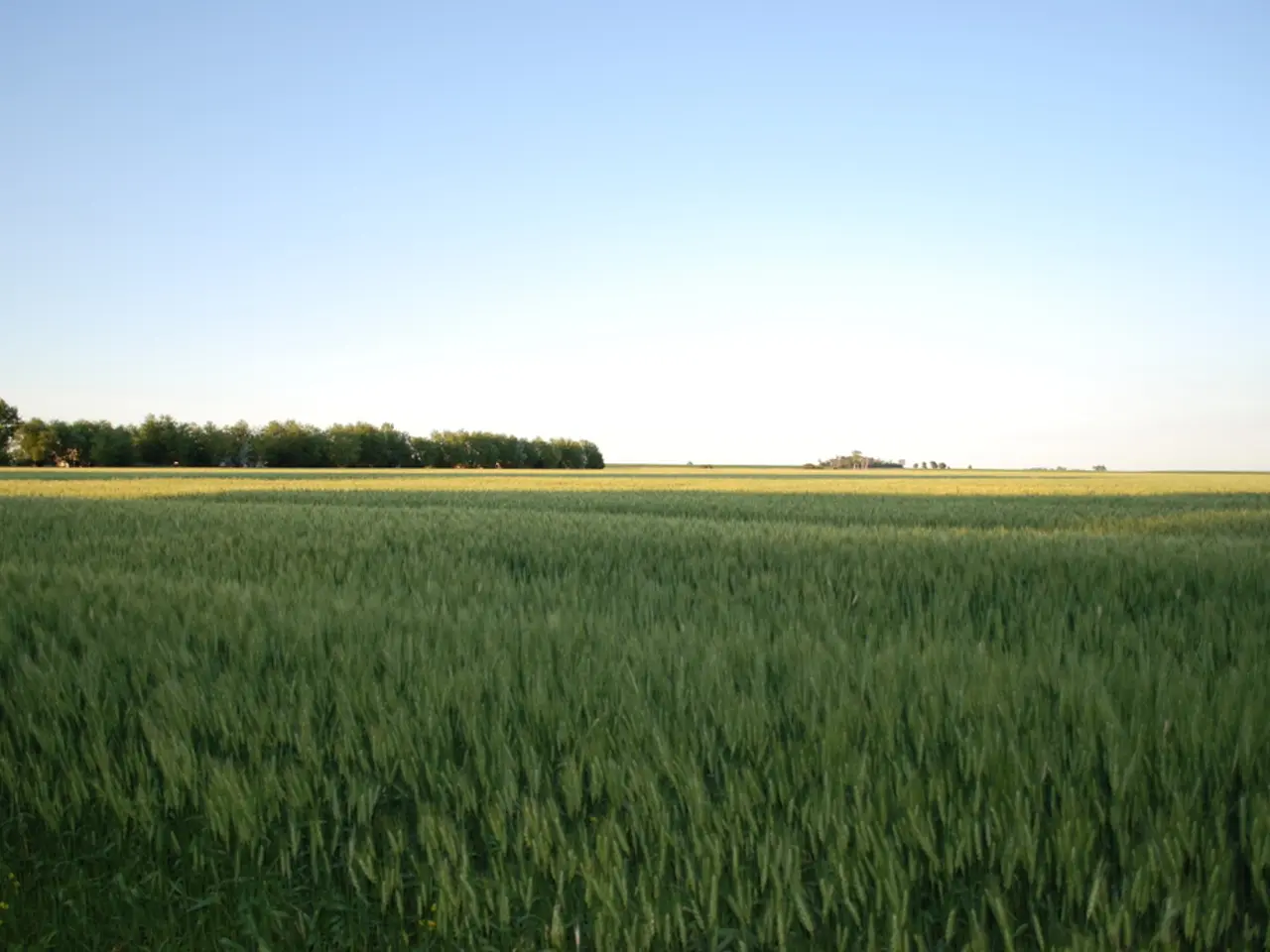Event at Bracken Field Lab, located within Denton Reserve, Yorkshire
News Article: Bracken Field Lab Event Focuses on Sustainable Management
Last week, a group of experts, researchers, and practitioners gathered at Denton Reserve in Yorkshire for the Bracken Field Lab event. The event, which was facilitated by Rob Bunn, aimed to share the latest research, demonstrate field techniques, and discuss challenges in managing bracken in natural habitats.
The event brought together a diverse group of individuals, including 30 farmers, National Landscape officers, estate managers, and farmer advisors. The attendees were interested in sustainable land management and controlling invasive bracken, a fern that poses a significant threat to biodiversity and ecosystems.
The Bracken Field Lab is a collaborative initiative that includes academic partners and farmers. In the coming months, the Bracken Field Lab will release reports and findings about bracken management, ecology, and control methods.
During the event, several speakers shared their insights on various topics. Dr. [Name], an IF Specialist, focused on advances in bracken identification and monitoring, discussing remote sensing and field survey methods to map bracken distribution accurately. Prof. [Name], a PfL Researcher, presented studies on the impact of bracken on native flora and fauna, highlighting how bracken affects species diversity and ecosystem functions.
Land Management Expert [Name] covered practical bracken control techniques, including mechanical removal, herbicide applications, and grazing management. Conservation Practitioner [Name] discussed integrating bracken management into wider landscape conservation, presenting case studies where bracken control contributed to habitat restoration goals.
The event included interactive sessions, field demonstrations, and group discussions on best practices and future research needs. Attendees learned about mechanical bracken management from Andrew Letten and his Dales Horse, Charlie, during a tour of Denton Reserve. Paul Renison, a Cumbrian farmer, concluded the session by discussing his successful bracken management strategy with Aberdeen Angus cattle.
Robin Pakeman, an academic partner from the James Hutton Institute, provided insight into the bracken plant, shedding light on its biology and life cycle. Julia Horner and Bill Grayson shared their experiences as part of the 8 Field Lab farmers, offering practical insights into bracken management on their own farms.
The Bracken Field Lab event provided a valuable opportunity for experts, researchers, and practitioners to share knowledge, learn from each other, and discuss the challenges and opportunities in managing bracken in a sustainable manner. Future reports and findings from the Bracken Field Lab will be shared in the coming months, offering valuable insights for those interested in sustainable land management and controlling invasive bracken.
- The Bracken Field Lab event, while discussing effective methods for managing invasive bracken, also encouraged attendees to incorporate outdoor-living andhome-and-garden best practices into their landscape conservation strategies.
- As the Bracken Field Lab delves deeper into research and studies on bracken management, it is emphasizing the importance of sustainable living and creating an optimal lifestyle by preserving natural habitats, thus bringing together both academia and the home-and-garden enthusiasts.




